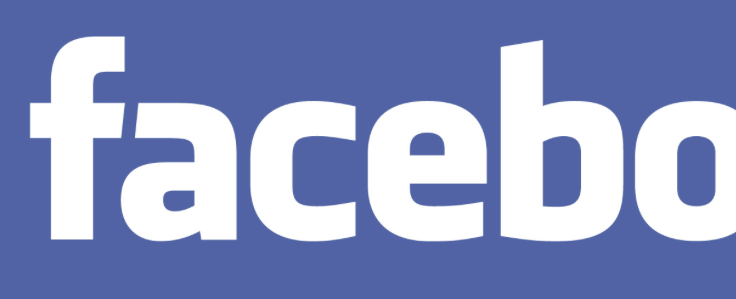Does Facebook Really Own Your Photos?
 The wonderful people at Photo Stealers, a wall of shame site that focuses on highlighting photographers who pad their portfolios with the works of others, have had a great deal of trouble with their Facebook page recently.
The wonderful people at Photo Stealers, a wall of shame site that focuses on highlighting photographers who pad their portfolios with the works of others, have had a great deal of trouble with their Facebook page recently.
One of the photographers they’ve called out have launched a campaign against them. That campaign has included a string of attacks on various services that Photo Stealers uses, including their Facebook page. That page has been shut down, restored, have had multiple posts removed and also caused the site’s creator and lone blogger, Corey Ann, to be personally banned on Facebook.
Ann has been reaching out to Facebook both to try and restore her posts and accounts and to try and stop what she considers a harassment campaign. When she finally was able to work with someone, the email reply she got was, in a word, breathtaking.
“…once something is posted or uploaded onto Facebook it becomes Facebook’s property. So if the original photographer uploaded the photo first onto Facebook and then others have taken it from there and uploaded it to their pages or profiles, this is legal and within policy, there’s nothing I can do about it unfortunately even if they are taking credit for the photos.”
According to the help center representative, this was verified by her supervisor, who she had worked with on the response.
Of course, the Facebook Terms of Service tells a slightly different story. It says:
For content that is covered by intellectual property rights, like photos and videos (IP content), you specifically give us the following permission, subject to your privacy and application settings: you grant us a non-exclusive, transferable, sub-licensable, royalty-free, worldwide license to use any IP content that you post on or in connection with Facebook (IP License). This IP License ends when you delete your IP content or your account unless your content has been shared with others, and they have not deleted it.
In short, Facebook has a (broad) license to use your work, but there is no copyright transfer and Facebook does not own your images in any way.
This was further backed up by a different Facebook representative that jumped into the fray, who clarified that Facebook has a license to use the image and, furthermore, has policies against uploading infringing work.
But while the original representative was clearly wrong and many have risen up to debunk them, it doesn’t mean that there isn’t a problem.
After all, if one representative at Facebook (and their supervisor) feel this way, then it’s likely others do and this can create a serious problem when trying to deal with plagiarism and copyright infringement on the site.
The Power of Perception
The problem with the encounter is this: One, but likely more, Facebook employees believe that anything you upload to the site becomes Facebook’s property. This includes pictures, posts, videos, etc.
While this almost certainly would not hold up in a court of law. Very few copyright holders have the means to take such issues to court, especially against a giant corporation like Facebook.
As such, Facebook, for many creators, is the enforcement system. If a creator submits a copyright notice to Facebook and Facebook declines to remove it, there isn’t much further that most can do. The work, more or less, just stays online.
When the enforcers of the law don’t understand the law and mistakenly believe that the content involved is theirs, motivation to stop piracy drops. Imagine if the police mistakenly believed that they owned every vehicle that had driven onto government property, how different would the recovery of stolen cars be?
While I would like to believe that this is an isolated incident and that this is just a pair of employees who have the wrong idea, I highly doubt it and the fact that Ann has had so many problems with Facebook over these issues highlights that it likely isn’t.
And this is a very serious problem for Facebook, considering that it’s going through other copyright controversies.
It’s About the Community Too
 Last month I posted about how Facebook was encouraging video piracy by giving preferential treatment to videos hosted on its service versus those linked from YouTube and elsewhere.
Last month I posted about how Facebook was encouraging video piracy by giving preferential treatment to videos hosted on its service versus those linked from YouTube and elsewhere.
The basic problem is that a video downloaded from YouTube and uploaded to the site directly will get far more views/clicks/likes/shares than one just linked from an official channel. Many, including countless celebrities, have taken to doing just that as a means of bolstering their audience.
The outcry over this has been loud and is ongoing, with sites posting tips and suggestions for fighting it. However, Facebook’s more recent copyright challenge has done nothing to help its reputation on copyright matters.
And this could have a very serious impact for Facebook beyond the law. Sites that become known as havens for copyright infringing material typically attract people who want to do nothing but infringe copyright. This is true of all types of sites, including social networks, forums, photo sharing sites, blogs and anything in between.
YouTube, for example, was originally a haven for copyright-infringing clips and videos, so much so that one lawsuit about its pre-Google behavior wasn’t settled until 2014.
But while YouTube may have been on the right side of the law, it didn’t generate a great deal of revenue nor did it grow into a bastion of creativity and originality. To do that, the site had to get serious about copyright infringement and begin to fight it using tools such as Content ID.
While that decision upset many users, it also meant that original creators no longer had to compete with clips from TV shows and movies, giving them a platform to become stars in their own right.
Facebook, however, is in danger of doing the inverse. Starting out as a site with a decent track record on copyright and letting dumb decisions and staff mistakes ruin its reputation, possibly inviting an infringement problem it clearly doesn’t want.
Bottom Line
The time for Facebook to get serious about copyright is now. Such a decision would likely start with Facebook retraining its staff, especially its support staff, on copyright issues and just what Facebook’s rights and responsibilities are.
Then, Facebook needs to take a look at the infringing content they are seeing and decide what they can do to discourage it. Whether its punitive measures against repeat infringers or using content matching to prevent unauthorized uploads, steps against piracy don’t just discourage infringement, they encourage creativity.
But the challenge, as YouTube has found, will be encouraging and nurturing fair use and creative, legitimate uses of copyrighted material. There is no perfect solution, but Facebook has the luxury of learning from YouTube’s mistakes.
In the end, if Facebook wants to be a place where people express themselves, it can’t also be a place for rampant copyright infringement. It’s time for Facebook to stand up and realize that.
Want to Reuse or Republish this Content?
If you want to feature this article in your site, classroom or elsewhere, just let us know! We usually grant permission within 24 hours.
